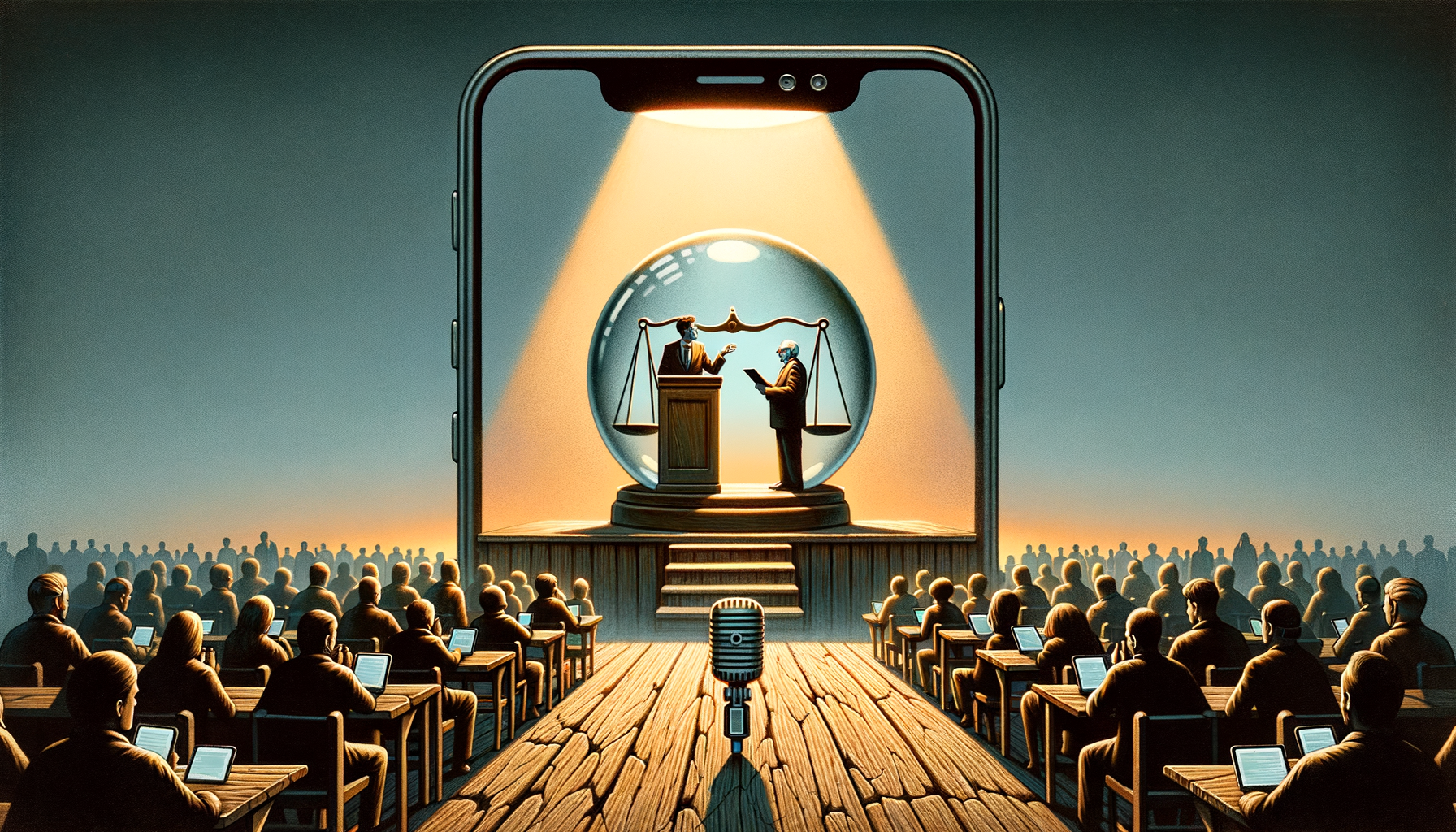“Examining the Rise of Silent Depression Awareness through TikTok”

A new wave on social media platforms, specifically TikTok, has surfaced and it revolves around a rather sobering theme: silent depression. Essentially, this refers to the mental health issues that are often overlooked, unspoken, or minimized. For example, many individuals may experience high-functioning depression or another form of mental illness without visibly showing symptoms, making it difficult for others to recognize their struggle.
In today’s fast-paced society where everyone is engaged in a seemingly endless hustle and bustle, we often overlook, or even disregard, the importance of mental well-being. There’s a pervasive trend amongst millennials and Generation Z – the so-called “Hustle Culture”. These young people are continuously driven to achieve success, with the belief that sleepless nights and overworking are necessary sacrifices. This, coupled with societal pressures to succeed, leads to silent depression, a critical and nowadays, widespread, mental health challenge.
What exactly is silent depression, you ask? Also known as high-functioning or concealed depression, it is a state of mind where individuals battling it seem to live normal, even successful lives outwardly, but are inwardly dealing with depressive symptoms. While they do not necessarily exhibit common symptoms of depression, this doesn’t make the burden they carry any easier.
This phenomenon has found a platform on TikTok. The video-sharing app acts as a diary-like outlet for many, who use it to share brief clips of their daily lives. However, these clips don’t always show fun dances, cooking recipes, or pets doing adorable things. Nowadays, there’s a growing number of TikTok videos showcasing a deeper, more serious side of the everyday life of our younger generations, providing a voyeuristic insight into the often-silent battles against depression.
This new trend is characterized by a significant amount of young people making confessional-style videos, detailing their experiences with this unique form of depression. One can find numerous videos with hashtags like #hustleculture, #burnout, and #mentalhealth. While many videos still perpetuate the idea of a perfect life, the narrative is slowly changing as more and more people expose the realities behind the smiles.
Remarkably, the language used by these young people is incredibly candid and vulnerable, translating the silent misery attached to ‘keeping up appearances’. It serves as a reminder that there’s a person made of flesh and emotions on the other side of the screen, as opposed to a lifeless user who is a slave to the hustle culture.
According to a TikTok spokesperson, the app strives to offer a safe place for users to express their feelings and experiences. The topics of mental health and well-being are an area of major focus. The social media platform encourages users to share their experiences and feelings, thereby aiding in raising awareness and reducing stigma around mental health issues.
Now, while it’s heartening to see that serious conversations around mental health are gaining traction on social media, the question that arises is whether this trend actually promotes a healthy and productive discourse. Some experts warn about the dangers of “glorifying” or trivializing mental health issues on such platforms. They argue that while raising awareness is important, it doesn’t equate to providing adequate help or resources to those struggling with these issues.
Another area of concern revolves around the impact of these videos on viewers’ emotional well-being. While some viewers may feel validated and less lonely watching these videos, others may find them triggering, potentially exacerbating their own mental health issues.
Yet, despite these potential pitfalls, it’s essential to acknowledge that this trend has sparked a new discourse online about the often unaddressed issue of silent depression. And that’s significant. The act of narrating personal experiences with emotional struggles marks a departure away from the typically superficial, perfectly curated content that permeates most of social media. This authenticity provides a chance for those struggling to feel seen, heard and validated.
Such discourse is increasingly needed in our society, which often fails to recognize that high-performing people can also be struggling internally. By recognizing and bringing to light the reality of silent depression, we create an environment that makes it okay for individuals to speak up and perhaps, more importantly, to seek help.
While it remains to be seen if this rising trend on TikTok will foster long-term change in attitudes towards mental health, it is certainly a step forward. It showcases the power of social media as a tool for social reform. This trend, despite its shortcomings, is a stark reminder that mental health is as real and as important as physical health, and it’s high time to treat it as such.
Raising awareness about mental health is necessary. Still, it should be coupled with actionable steps and resources to help individuals seek professional help if needed. Social media platforms like TikTok can leverage their influence by partnering with mental health organizations and professionals, providing vital resources and actionable steps to users.
Moreover, users should engage mindfully on these platforms, recognizing that while these platforms can provide solace and connection, they are no substitute for professional mental health assistance. If you or anyone you know is struggling, it’s imperative to seek professional help from mental health providers.
In conclusion, the spurt of ‘silent depression’ on social media platforms like TikTok reflects societal attitudes towards mental health. It’s a wake-up call, reminding us all that even those who appear perfectly fine on the outside can be battling intense emotional turmoil on the inside. There’s no doubt that social media platforms will continue to play a pivotal role in shaping the discourse around mental health care. It is up to us – as consumers, influencers, and creators – to wield this power responsibly and promote a healthier, more understanding society.
